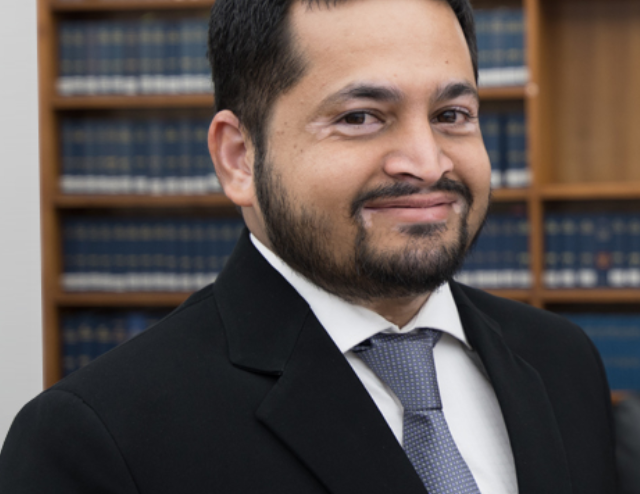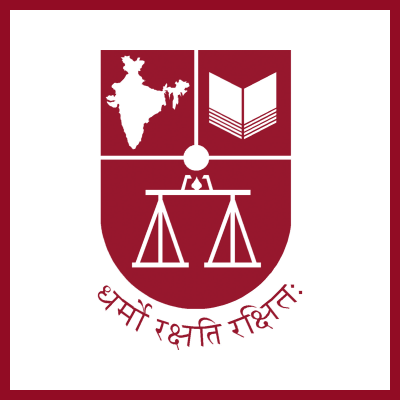Postgraduate Diploma inCyber Law & Cyber Forensics(PGDCLCF)
Overview
The PGDCLCF focuses on cutting-edge issues in the field of cyber law and forensics. Equips graduates to understand and work in the fields of internet-enabled and online business and commerce, as well as to understand the implications of online social interactions and actions. With grounding in international and Indian law relating to cyber law and forensics, graduates from this programme can play roles in policy-making, law enforcement, and the development of business and social strategies that leverage the capabilities of information technology in general and the Internet in particular. The PGDCLCF has been provided continuously since 2013.
Programme Highlights:
- Examines the interlinkages between emerging technologies and their applications with current laws, policy developments, and practical applications of international and Indian cyber laws and forensics.
- Specific studies of areas such as crypto currency, blockchain, and artificial intelligence that examine whether contemporary legal systems are effective in regulating developing technologies, how citizens and businesses may interface with such technologies, and the developmental direction of jurisprudence in this space.
- Graduates can expect to play roles in strategy, policy, advocacy, and legal advisory and litigation roles for businesses, individuals, and organisations that depend upon technology; graduates would also be equipped for positions in governance and efforts in bridging the digital divide.
- The programme is spread across one year and gives learners the flexibility to design their own learning pathway.
Courses
Course 1: Introduction to Law & Legal Systems
This paper introduces the student to legal thinking and reasoning, and to legal systems, with a particular focus on Indian law and the Indian legal system. Those students who are from a non-law background would find this course particularly helpful.
Course 2: Cyber Technology, Cyber Wrongs & Cyber Laws
This paper consists of the following modules:
Module I: Fundamentals of Digital/Computing & Communications Devices
Module II: Introduction to Advancements In Digital Technology
Module III: Cybercrimes – Technical Perspective
Module IV: Technical Aspects of Current Cyber Security Threats
Module V: Cybercrimes and Legal Perspectives
Module VI: Cyber Civil Wrongs and Legal Aspects
Module VII: Cyber Judicial System and Other Institutional Framework
Module VIII: Growing Concerns Relating To Cyber Space and Cyber Technology
Course 3: Law of Cyber Crimes and Cyber Forensics
This paper consists of the following modules:
Module I: Investigation of Cybercrimes – Indian Law Framework
Module II: Jurisdiction on Cyber Space
Module III: Internet Intermediaries And Legal Aspects
Module IV: Digital Evidence: Technical Perspectives
Module V: Cyber Forensics – Evidentiary Aspects From Technical Perspective
Module VI: Legal Aspects of Digital Evidence
Module VII: Legal Aspects of Cyber Forensics
Module VIII: International Approach Towards Legally Regulating Cyber Space with Emphasis Upon Selected Regional And National Approaches
Course 4: Legal Aspects of Cyber Space
This paper consists of the following modules:
Module I: Law Relating to Digital Contracts
Module II: Techno Legal Aspects of Digital and Electronic Signatures
Module III: E-Commerce And Legal Issues
Module IV: E-Governance And Legal Aspects
Module V: Intellectual Property Rights On Cyber Space And Relating to Cyber Technology
Module VI: Privacy And Data Protection On Cyber Space
Module VII: Legal Issues Of E-Banking And Digital Payment System
Module VIII: Cyber Law Compliance Relating Issues In Industries
Faculty

Associate Professor of Law
and
Coordinator, Advanced Centre on Research, Development & Training in Cyber Law and Forensics

Assistant Professor

Manu Kulkarni
Visiting Faculty
Fee
For Indian Nationals
| Regular Fees | |
| Application Fee | Rs. 2,000 |
| Admission Fee | Rs. 3,000 |
| Course Fee | Rs. 42,300 |
| Examination Fee | Rs. 3,200 |
| Total fees | Rs. 50,500 |
| Fees mentioned above are provisional and subject to ratification by the University Governing Bodies |
|
| Other fees | |
| Admission late fee | Rs. 500 |
| Continuation fee | Rs. 3,500 per year |
| Extension fee | Rs. 6,000 per year |
| Re-evaluation fees | Rs. 900 per paper |
For Foreign Nationals
| Regular fees | |
| Application Fee | Rs. 2,000 |
| Admission Fee | Rs. 3,000 |
| Course Fee | Rs. 1,26,000 |
| Examination Fee | Rs. 3,200 |
| Total fees | Rs. 1,34,200 |
| Fees mentioned above are provisional and subject to ratification by the University Governing Bodies |
|
Apply
Please note the following information regarding eligibility and the mode of applying for this programme.
Eligibility
The minimum eligibility for applying for this programme is a graduate degree (in law or other fields) from a recognized university.
Students with a degree certificate or its equivalent from any UGC-recognized university, Association of Indian Universities, CA, CS, ICWA, Open University/distance learning can apply. There shall be no restriction as to age, nationality, gender or employment status.
Application Timeline
Applications can be filled out online at the URL: https://paceadmissions.nls.ac.in
The deadline for submission of applications to all our programmes is July 31, 2023.
For admission-related queries, please write to admissions.pace@nls.ac.in
FAQs
These are some commonly asked questions about this programme. For general questions about the NLSIU Distance Progamme, please visit the General FAQs page.
How many years does a student have to complete a programme?
Students of the Diploma programmes can complete their programme in up to five years from the year of their enrolment.
Students are required to pay the prescribed fee at the time of admission. If a student has to continue the programme beyond one academic year because of non-fulfilment of the prescribed requirements for the award of the diploma, they will be permitted to continue for the subsequent two academic years by paying a continuation fee as prescribed for each year.
After a period of 3 years if the student is unable to clear the programme they may be given an extension of another 2 years by paying Rs. 5000 per year for the subsequent two years as extension fee, provided they have cleared 2 out of the 4 courses in a Diploma programme. At the end of the fifth academic year, if the student is unable to complete the requirements for the award of the diploma, the admission stands automatically cancelled.
What if the candidate does not complete the course in 3 years?
If the candidate does not pass or complete the course, his enrollment ceases. He will have to register afresh by following the usual procedures prescribed for first admission. His performance at the earlier exams is not carried forward. He will have to redo the entire academic exercise prescribed, in the syllabus.
What is the scheme of Assessment?
Every course shall have a combination of formative and summative assessments. This will aid in regular learning and understanding concepts better. Please note the following details regarding the upcoming assessments: Assessment Details:
| Sl. No | Assessment Type | Assessment Pattern | Marks Allotment | Mode | Enrollment Fee |
| 1. | Formative I | MCQs | 20 Marks | Online | INR. 200/- |
| 2. | Formative II | MCQs | 30 Marks | Online | INR. 200/- |
| 3. | Summative | Subjective | 50 Marks | In-person | INR. 300/- |
What is Grading Mechanism?
To successfully complete a programme, a student must take all three assessments (Formative I + Formative II + Summative) and obtain a cumulative grade point average (CGPA) of three and above out of seven. An aggregate of your performance will count towards the final grade in each course.
| Grade | Grade Description | Grade Point | Percentage of Marks |
| O | Meets the highest standards for the assignment or course | 7 | 70% and above |
| A+ | Meets very high standards for the assignment of course | 6 | 65% to 69% |
| A | Meets high standards for the assignment or course | 5 | 60% to 64% |
| B+ | Meets most of standards for the assignment or course | 4 | 55% to 59% |
| B | Meets basic standards for the assignment or course | 3 | 50% to 54% |
| C+ | While acceptable, falls short of meeting basic standards in several ways | 2 | 45% to 49% |
| C | Lowest passing grade | 1 | 40% to 44% |
| F | Failing, very poor performance | 0 | Less than 40% |

Admission Status
Closed
Duration
1 Year
Number of Courses
4
Course Fee (Indian Nationals)
Rs. 50,500 (Fees mentioned is provisional and subject to ratification by the University Governing Bodies)
Course Fee (Foreign Nationals)
Rs. 1,34,200 (Fees mentioned is provisional and subject to ratification by the University Governing Bodies)
